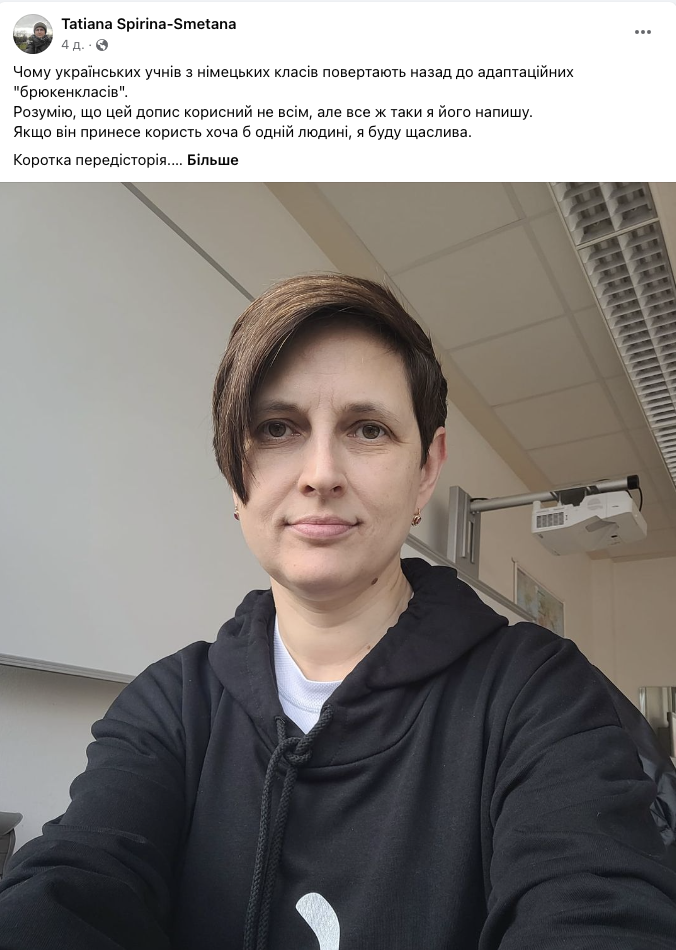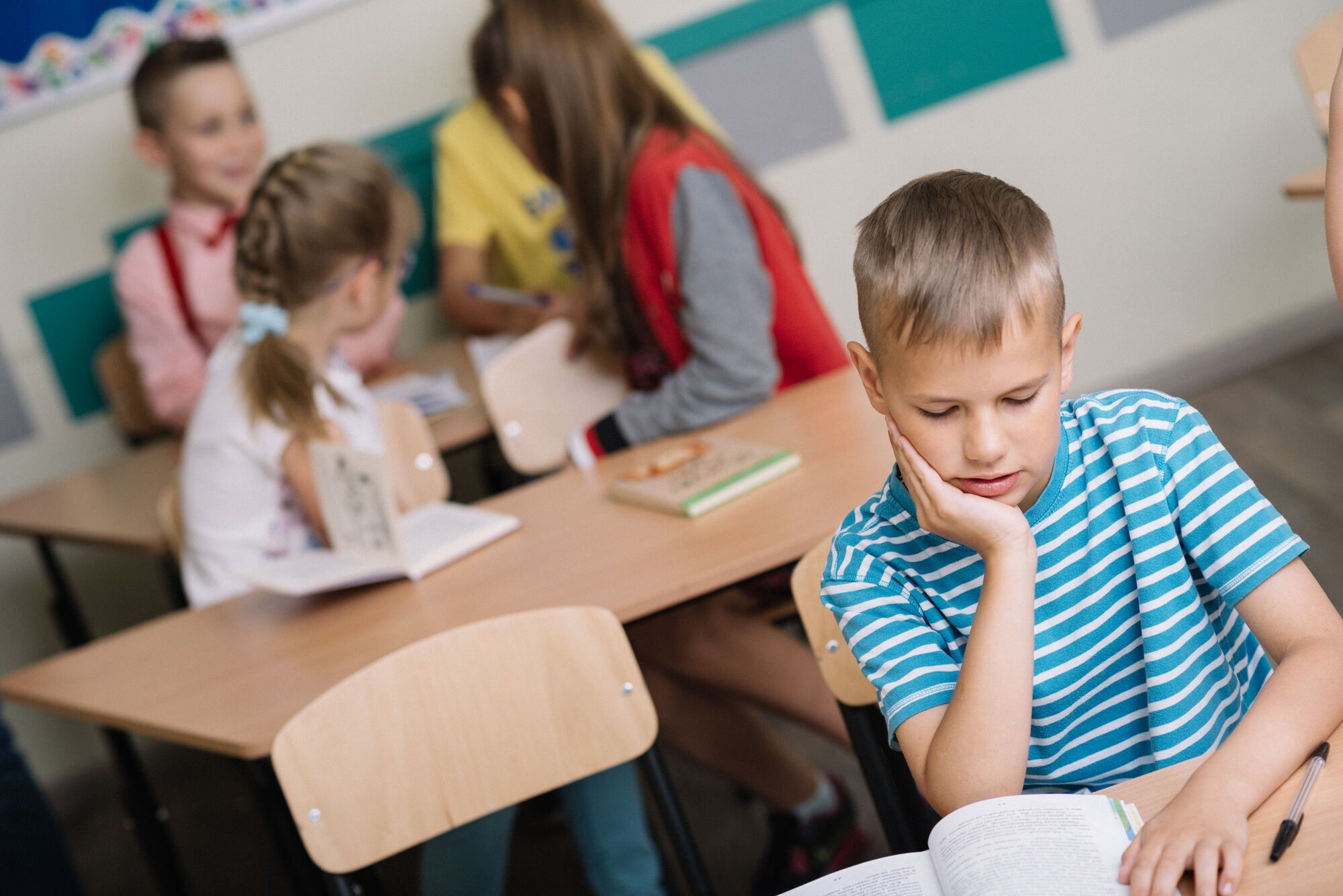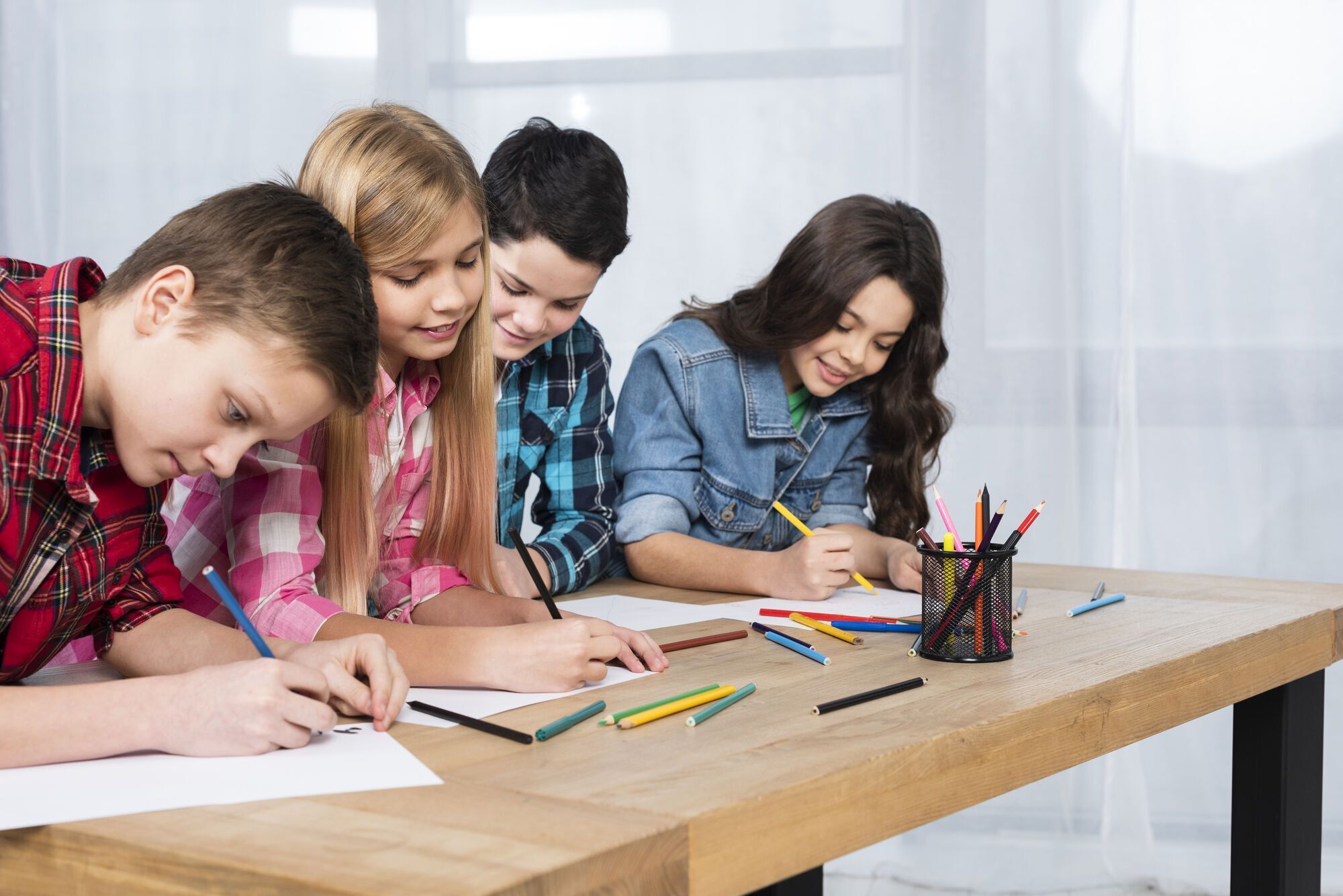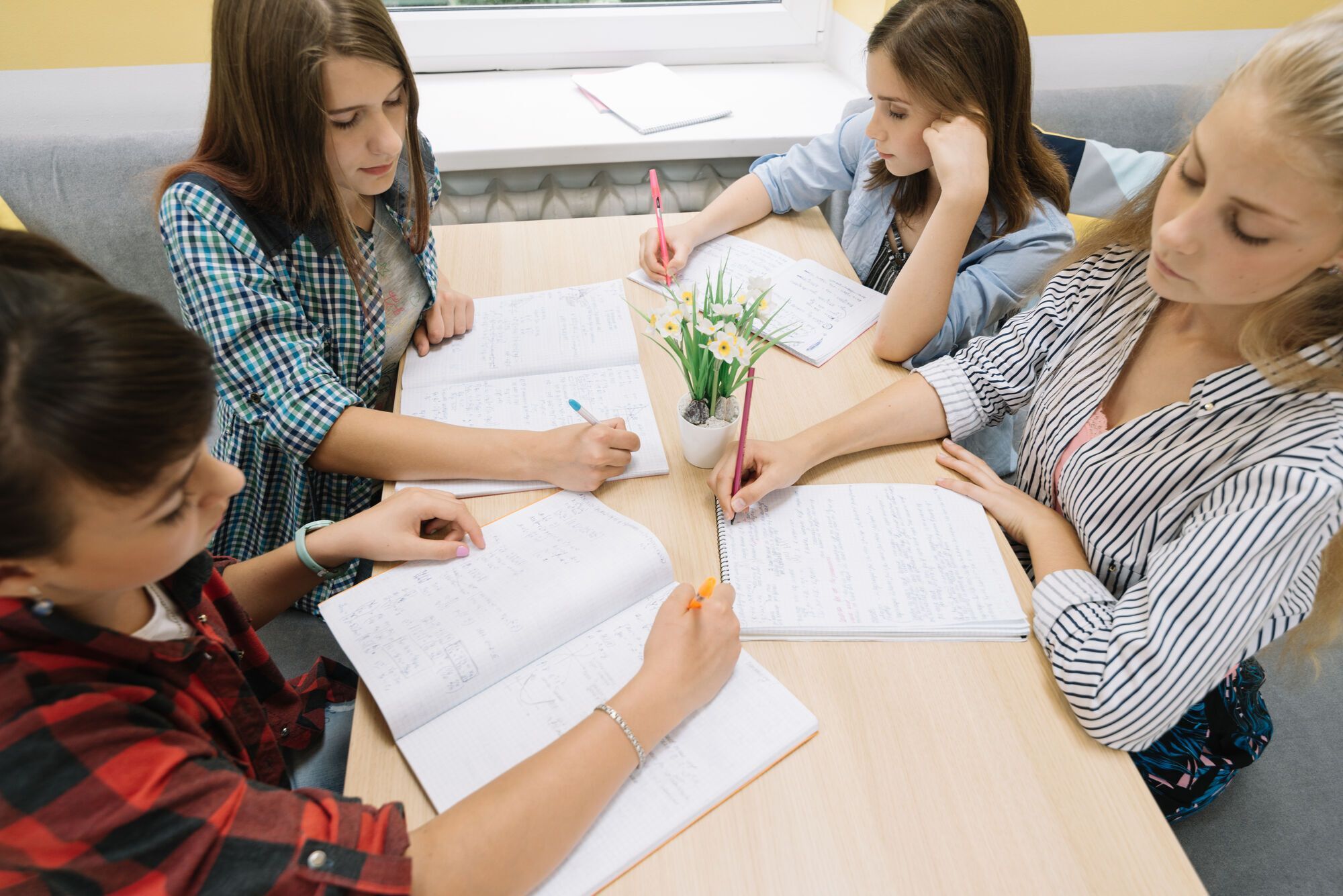News
Studying in Germany: why Ukrainian students are being returned to "brückenclasses" and what will happen when they are closed
The German education system has received a huge number of Ukrainian schoolchildren due to Russia's full-scale invasion of Ukraine. To make it easier for children to adapt to foreign educational institutions, adaptation "brückenclasses" were created for them. These groups consist of only Ukrainians, and teenagers study German, math, English, art, labor, cooking, and sports.
Students who did not "pull it" in regular or integration classes at gymnasiums went to "bruken classes." However, in 2024, they are to close completely, as children were gradually transferred to regular German schools. Nevertheless, the number of students returning to adaptive classes is increasing, says Tetiana Spirina, a Ukrainian teacher of such a class.
According to her, German colleagues explain that Ukrainian students do not speak the language of this country at a sufficient level, which causes difficulties in learning. She adds that there are at least 10 subjects in the high school where she teaches. In particular:
- Mathematics (the program is about a year behind the Ukrainian one)
- English
- German
- labor
- cooking;
- art;
- sports;
- geography, politics, history - one subject;
- science and natural sciences - one subject;
- ethics or religion.
The teacher shared the most important skills that students need to master learning in a German middle school classroom.
Working with information and text
Not all students who enter German classes are able to read, write out unfamiliar words, and translate the text, even with the full use of a translator. In order to support teenagers, the school primarily looks at how they work with such information.
"So, the first thing we do if we want to support a child in learning is to see how they work with the text. If they can't read, translate and understand a text in any subject, it's no use. What can we say about working with questions and tasks after the text ," emphasizes Spirina.
Keep your attention and concentrate
In a German school, children study for 90 minutes without a break. According to the teacher, there is almost no concentration in the first two lessons, which are most often German. 80-90% of students do not hear or forget the lesson material without repeating it many times.
Spirina explains that this happens because children play with gadgets until 10 o'clock, and then wake up at 4 a.m. and "sit in the screens" again. After that, "living zombies" come to school.
"The rule of German teachers: "everyone has their own pace of learning, let them come back for another year to repeat the material" looks democratic. German teachers believe that if this is the motivation, then it's okay. "Own pace, own responsibility, own choice. Unlike the situation in a Ukrainian school, where everyone around you is dancing with tambourines and pulling you by the ears to the next grade ," the teacher says.
Reproduce written information in writing (rewrite)
According to the teacher, 70% of students cannot copy information from the blackboard or textbook verbatim into a notebook. She emphasizes that for Germans, this is a basic skill: to reproduce everything identically, to emphasize, to make a frame.
"Mind maps are also something that children are almost never familiar with, but fortunately, they pick up on them quickly," says Spirina.
Ask the teacher questions when something is not clear
The teacher emphasizes that Ukrainian children have a big problem with this skill. Students believe that this way they will show their ignorance. Instead, German teachers do the opposite. The fewer questions students ask, the more they believe that the teenager is not motivated to learn and ignores the process. Spirina notes that her foreign colleagues were surprised to learn why our children don't ask anything and, as a result, don't understand or do anything.
Respect the teacher and respond to his or her comments
The teacher noted that Ukrainian teenagers often use swear words at school and think that they are not understood there. However, according to her, this is not the case. After all, the whole school swears with a German accent after hearing them. She assures us that teachers react to this, but without explanation, and simply return students to "trouser classes."
Learn new words regularly and work on your vocabulary
The teacher assures that Ukrainian students need to work on their vocabulary more, because it is one thing to just work in a language class, and another to learn a foreign language, such as math. According to her, in German classes, no one will stop to devote enough time to learning terms, especially since some students do not know many meanings in Ukrainian.
Working independently and learning new things
Spirina expressed concern for those teenagers who go to German schools and do not try to study there, compared to those who manage to master a foreign language in six months and move on to high schools. The teacher notes that when the "brückenclasses" are closed, there will be nowhere to send such students. They will be able to stay to study at their own pace, as is customary in Germany.
"The only thing that always reassures me is that no one sits in school with a beard. Everyone graduates and moves on with their lives. In any country. Even in Germany. Where, despite all the stories about "own pace of learning" and segregation of students by grade level, the system works from elementary school on. It has both pros and cons," the teacher summarized.
Only verified information is available on the OBOZ.UA Telegram channel and Viber. Do not fall for fakes!

































